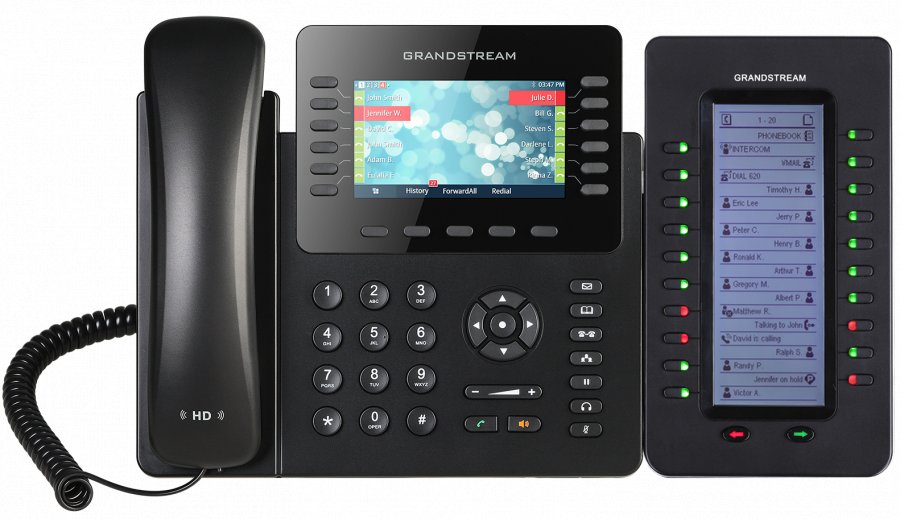What does it truly take to excel in sales? Beyond charm and polished pitches, success hinges on genuine human connection—empathy and trust. Can authentic engagement turn fleeting interactions into lifelong partnerships? This guide delves into the core skills of effective sales—active listening, emotional intelligence, transparency, and consistent care—that foster loyalty and long-term relationships. By prioritizing real understanding over immediate closing, sales professionals build credibility and rapport, transforming routine conversations into meaningful bonds. Real-world examples from financial advisors, real estate agents, and healthcare providers illustrate how heartfelt empathy and trust drive results far beyond individual transactions. Are you ready to shift from transactional selling to relationship-driven success? Discover how authentic human connection isn’t just morally right—it’s a strategic advantage, capable of creating resilient bonds that withstand market fluctuations and turn customers into advocates for years to come.
The Power of Authentic Connection: Building Trust and Empathy in Sales
In sales, success depends far more on connection than on a polished pitch or a shiny product. Building genuine trust and demonstrating empathy turn a simple transaction into a meaningful relationship. When salespeople truly put themselves in their clients’ shoes, they create bonds rooted in understanding and honesty. This human touch can be the key to standing out in a crowded marketplace where many options vie for attention.
In today’s fast-paced world, customers crave authenticity and connection. They want to feel valued, understood, and cared for. When sales professionals show empathy—listening carefully, asking thoughtful questions, and responding sincerely—they communicate that their focus is on the client’s needs, not just closing a deal. This approach naturally cultivates trust, as it signals genuine concern and integrity.
Trust isn’t something that’s handed over easily; it’s earned through consistent, honest engagement. When salespeople demonstrate authenticity by following through on promises and being transparent about what they can deliver, they lay a solid foundation. Small acts—like remembering personal details or responding promptly—reinforce this trust and show clients they’re genuinely valued.
Emotional intelligence plays a vital role here. Recognizing verbal cues, body language, and tone of voice allows salespeople to respond more thoughtfully. When you pick up on these signals, interactions become more personalized and caring. This attentiveness not only deepens trust but also transforms routine conversations into opportunities for real connection.
Authentic engagement is an ongoing process. Each interaction offers a new chance to demonstrate sincerity and understanding. Showing up consistently, listening actively, and responding with care turn initial contacts into long-term relationships. Over time, these bonds become the foundation of loyalty and advocacy, fueling sustained business growth.
Ultimately, the core of effective sales is authentic human connection. When empathy and trust are woven into every conversation, they create relationships that last beyond a single transaction. These bonds foster loyalty, encourage referrals, and elevate your reputation. In a world full of choices, genuine connection remains the most valuable asset a salesperson can cultivate.
Fundamentals of Engaging Sales: Trust, Listening, and Authenticity
Effective sales engagement starts with building trust through authenticity and active listening. When you genuinely seek to understand your customer’s needs, challenges, and motivations, you shift from simply pitching to creating a meaningful dialogue. Clarity in communication, confidence in your offerings, and the ability to adapt based on cues are essential ingredients in this process. The goal is to foster an environment where the customer feels heard and respected, setting the stage for trust to develop naturally.
Listening more than you speak is critical. Giving your full attention, avoiding distractions, and reflecting on what the client shares shows that their perspective truly matters. Thoughtful, open-ended questions invite deeper insights and demonstrate your genuine interest. This approach not only makes the customer feel valued but also helps you tailor your message to their specific situation, making your solutions more relevant and impactful.
Building credibility hinges on consistency and honesty. Showing up prepared, following through on promises, and being transparent about your capabilities reinforce your reliability. Small gestures—like quick responses or remembering personal details—can significantly strengthen your reputation. Trust takes time to nurture, and these everyday actions lay a solid foundation for ongoing relationships.
Empathy and emotional intelligence are vital daily practices. Recognizing tone, facial expressions, and body language allows you to respond more thoughtfully and authentically. When you’re attuned to these nonverbal cues, your interactions become more caring and personalized. This attentiveness encourages clients to share more openly, deepening the connection and fostering a sense of mutual understanding.
Patience is crucial; rushing to close or jumping to solutions before truly understanding your customer’s needs can backfire. Respecting their pace and asking respectful questions create space for honest dialogue. When clients feel your approach is sincere and caring, they’re more likely to engage genuinely, which leads to better solutions and stronger bonds.
Trust isn’t built overnight. It’s the result of consistent, authentic effort—responding promptly, delivering on promises, and showing genuine interest over time. These actions demonstrate your reliability and commitment, transforming initial interactions into long-term partnerships. As trust deepens, so does the likelihood of repeat business and referrals.
Creating a successful sales relationship also involves adapting your approach based on each client’s unique cues and responses. Emotional intelligence enables you to read and respond to unspoken signals, making interactions more genuine. This flexibility shows clients that you truly care about their experience, not just closing a deal.
Ultimately, mastering effective sales engagement means making every interaction count. By focusing on authenticity, active listening, and empathy, you turn transactional exchanges into genuine connections. These relationships foster loyalty, encourage ongoing collaboration, and set the foundation for sustained success.
Creating Lasting Bonds: Strategies for Long-Term Customer Loyalty
Building long-term customer relationships relies on consistent, empathetic interactions that demonstrate genuine care and understanding. When salespeople make a habit of following up, remembering personal details, and responding thoughtfully to concerns, they foster loyalty that extends beyond a single transaction. These small acts of attentiveness signal that clients are valued, creating a foundation of trust that can withstand market fluctuations and competitive pressures.
This kind of relationship-building isn’t about quick wins or superficial gestures. It’s about showing up reliably and proving that your focus is on your clients’ evolving needs. Regular check-ins, tailored solutions, and thoughtful advice reinforce that you’re invested in their success, not just closing a deal. When clients experience this consistency and care, they’re more likely to stay loyal, refer others, and become advocates for your brand.
Empathy plays a crucial role in nurturing these bonds. Recognizing emotional cues—like a change in tone or body language—and responding with sincerity deepens the connection. When clients feel understood and appreciated, they’re more open and trusting. This emotional intelligence turns routine interactions into meaningful conversations that strengthen the relationship over time.
Trust also grows through dependability. Delivering on promises, providing honest advice, and being transparent about what you can and cannot do all reinforce your integrity. Clients value consistency and often remain loyal when they see you are reliable, even amidst challenges. These deliberate actions—timely follow-ups, personalized suggestions—cement your credibility and foster long-lasting bonds.
Patience and ongoing effort are essential. Building trust isn’t instantaneous; it’s cultivated through steady engagement and genuine interest. Listening carefully, respecting their pace, and demonstrating authentic concern turn initial contacts into lasting partnerships. When clients feel consistently valued, they’re more inclined to stay loyal, recommend your services, and engage in repeat business.
The strength of these relationships is their resilience. Genuine care and consistent support create a buffer against setbacks and market changes. Clients who trust you are more forgiving of occasional missteps and more receptive to new offerings. This trust becomes a cornerstone that transforms transactional exchanges into lifelong partnerships, fueling growth and reputation.
Long-term relationships aren’t built on grand gestures alone—they’re rooted in honest, everyday engagement. Making clients feel truly seen and understood, day after day, builds a foundation that can weather any storm. When empathy and trust are woven into every interaction, they create bonds that not only last but flourish, turning customers into advocates and your business into a trusted partner for years to come.
For businesses looking to deepen these connections further, exploring innovative customer engagement strategies can be highly beneficial. One effective approach is to leverage resources like creating customer loyalty programs that recognize and reward ongoing patronage. Incorporating such initiatives not only reinforces trust but also encourages customers to remain committed to your brand over the long term.
Proven Techniques to Cultivate Trust and Show Empathy in Every Interaction
Building trust and demonstrating genuine empathy during sales interactions starts with intentional actions that clearly communicate your sincerity. Active listening is fundamental—giving your full attention, avoiding distractions, and truly hearing what your client shares shows that their perspective matters. Asking open-ended, thoughtful questions invites deeper insights and signals that you value their unique situation. Reflecting back what they say confirms understanding and builds a sense of connection, laying a strong foundation for trust to develop naturally.
Responding authentically to your clients’ concerns is equally vital. When they express worries or needs, acknowledge them sincerely without rushing to sell or jump to solutions. This demonstrates that your focus is on helping them succeed, not just closing a deal. Sharing relevant insights or personal experiences can further deepen the interaction, making it more human and relatable. Authentic responses foster a sense of partnership, encouraging clients to open up more and trust your guidance.
Transparency serves as a cornerstone of credibility. Clearly communicating what you can and cannot do sets realistic expectations and shows honesty. When clients see that you’re upfront about your capabilities, they’re more likely to rely on your advice. Small gestures like prompt follow-ups or remembering personal details reinforce your reliability, making clients feel genuinely valued and understood. Consistent, transparent actions over time turn initial trust into a lasting bond.
Paying close attention to nonverbal cues—such as tone of voice, facial expressions, or body language—can significantly enhance your empathetic response. Recognizing these signals allows you to adapt your approach in real time, making the conversation more caring and personalized. When clients sense you’re attuned to their unspoken concerns, they become more comfortable sharing openly, deepening the connection and fostering mutual understanding.
Patience and respectful inquiry go hand in hand. Rushing to close or pushing solutions prematurely can undermine trust. Instead, create space for honest dialogue by respecting their pace and asking thoughtful, open-ended questions. When your approach feels sincere and caring, clients are more inclined to engage honestly and thoughtfully. This genuine engagement not only helps you craft better solutions but also nurtures a relationship rooted in trust and respect, making it more likely to flourish over time.
Real-World Success Stories: How Empathy and Trust Transform Sales Outcomes
Empathy and trust don’t just sound good—they have a real impact on sales results. Take a financial advisor who spends time genuinely understanding their clients’ hopes, fears, and financial goals instead of just pushing products. Over multiple conversations built on listening and care, this approach fosters loyalty and long-term relationships. Clients who feel truly heard are more likely to entrust their financial futures and recommend the advisor to friends and family, turning a single interaction into a lasting partnership.
In the tech world, a SaaS salesperson working closely with small businesses can see how genuine engagement makes a difference. By addressing specific pain points and following up consistently, they position themselves as more than just a vendor—they become a trusted partner. This openness and personalized attention create a bond that withstands market fluctuations and competitive offers, encouraging clients to stay loyal even as options multiply.
Conversely, sales teams that focus solely on closing deals without building trust often find their efforts short-lived. When clients sense scripted pitches or a lack of authenticity, confidence quickly erodes. Without trust, even the most attractive offers lose their appeal, and customers may withdraw or leave negative feedback. On the other hand, companies that prioritize authentic empathy build a reputation for reliability, which helps them weather market challenges and competitors’ tactics.
A real estate agent’s success highlights this dynamic vividly. By truly listening to clients’ deeper motivations and concerns—rather than just showing properties—they can recommend homes that genuinely match their needs. Clients who feel understood and valued develop confidence in the agent’s judgment, leading to repeat business and strong referrals. This trust turns a one-time sale into a lifelong relationship rooted in mutual respect.
In healthcare, providers who approach patients with empathy see similar benefits. Patients who trust their doctor’s sincere concern are more open about their symptoms, leading to better diagnoses and treatment plans. These relationships encourage loyalty, even when less expensive options are available nearby. The sense of genuine care and understanding creates a bond that transforms a transactional visit into a sustained partnership focused on well-being.
These examples show how empathy and trust shape the entire customer journey. When clients experience authentic care and consistent support, they’re more likely to stay loyal, recommend your services, and overlook occasional missteps. Trust built through genuine engagement becomes a competitive advantage, turning one-time buyers into lifelong advocates. It’s a reminder that investing in real relationships isn’t just good practice—it’s essential for sustained growth and reputation.




